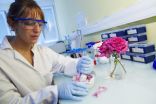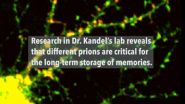Unexpected enzyme may resurrect roses' fading scents
2015-07-02
(Press-News.org) This news release is available in Japanese.
Researchers working with roses have identified an enzyme, known as RhNUDX1, which plays a key role in producing the flowers' sweet fragrances. These ornamental plants, which provide essential oils for perfumes and cosmetics, have been bred mostly for their visual traits, and their once-strong scents have faded over the generations. Restoring their fragrant odors will require a better understanding of the rose scent biosynthesis pathway. Until now, most studies of rose fragrance have focused on a biosynthetic pathway that generates pleasant-smelling alcohols, known as monoterpenes, using specific enzymes called terpene synthases. Some scientists have argued that terpene synthases are the sole route to the production of fragrant monoterpenes in plants. However, by investigating the genes of two rose cultivars selected for certain desirable characteristics, Jean-Louis Magnard and colleagues discovered that the flowers' fragrances were facilitated by a completely unexpected family of enzymes. Specifically, the researchers compared the transcriptomes of the Papa Meilland cultivar, which smells very strongly, and the Rogue Meilland cultivar, which produces very little scent, to flesh out their genetic differences. They found that the RhNUDX1 enzyme, which acts in the cytoplasm of cells located in the flowers' petals, generates the fragrant and well-known monoterpene geraniol, the primary part of rose oil. In the future, botanists might be able to exploit the RhNUDX1 gene in order to breed appealing scents back into these iconic flowers, they say. A Perspective by Dorothea Tholl and Jonathan Gershenzon explains the study in greater detail.
INFORMATION:
Article #18: "Biosynthesis of monoterpene scent compounds in roses," by J.-L. Magnard; A. Roccia; J.-C. Caissard; P. Sun; R. Hecquet; F. Jullien; F. Nicolè; S. Baudino at Université de Lyon in Saint-Etienne, France; J.-L. Magnard; A. Roccia; J.-C. Caissard; P. Sun; R. Hecquet; F. Jullien; F. Nicolè; S. Baudino at Université de Saint-Etienne in Saint-Etienne, France.
ELSE PRESS RELEASES FROM THIS DATE:
2015-07-02
This news release is available in Japanese. The seahorse tail is square because this shape is better at resisting damage and at grasping than a circular tail would be, a new engineering study shows. Insights gleaned from the study could inspire new armor and advances in robotics, the authors say. While most animals with tails, including certain monkeys, lizards and rodents, have soft, cylindrical-shaped appendages, tails of seahorses are organized into square prisms surrounded by bony plates. To better understand why the seahorse tail deviates from the norm, and what ...
2015-07-02
Mass killings and school shootings in the U.S. appear to be contagious, according to a team of scientists from Arizona State University and Northeastern Illinois University.
Study author Sherry Towers, research professor in the ASU Simon A. Levin Mathematical, Computational and Modeling Sciences Center, explained, "The hallmark of contagion is observing patterns of many events that are bunched in time, rather than occurring randomly in time."
Her team examined databases on past high-profile mass killings and school shootings in the U.S. and fit a contagion model to ...
2015-07-02
Climate change is forcing fish out of their current habitats and into cooler waters and many more species will soon be affected if climate goals are not met, say scientists.
An international team of researchers compared the future of the oceans under two climate change scenarios. In one scenario, we limit atmospheric warming to two degrees by 2100, as outlined by the Copenhagen accord. In the other, we continue with the current approach, which researchers say would cause a five-degree increase in atmospheric temperatures. They say if warming continues unchecked, fish ...
2015-07-02
A new study has discovered mysterious behaviour of a material that acts like an insulator in certain measurements, but simultaneously acts like a conductor in others. In an insulator, electrons are largely stuck in one place, while in a conductor, the electrons flow freely. The results, published today (2 July) in the journal Science, challenge current understanding of how materials behave.
Conductors, such as metals, conduct electricity, while insulators, such as rubber or glass, prevent or block the flow of electricity. But by tracing the path that electrons follow ...
2015-07-02
Researchers at Vanderbilt University and the National University of Singapore have determined the structure of a human monoclonal antibody which, in an animal model, strongly neutralizes a type of the potentially lethal dengue virus.
The finding, reported today July 2 in the journal Science, could lead to the first effective therapies and vaccines against dengue, a complex of four distinct but related mosquito-borne viruses that infect about 390 million people a year and which are a leading cause of illness and death in the tropics.
"Scientists in the antibody discovery ...
2015-07-02
NEW BRUNSWICK, N.J., - July, 2, 2015 - Johnson & Johnson (NYSE: JNJ) announced today that scientists at Beth Israel Deaconess Medical Center (BIDMC), Crucell Holland B.V, one of the Janssen Pharmaceutical Companies of Johnson & Johnson (Janssen), and several other collaborators today published results from a preclinical study of an HIV vaccine regimen used in in non-human primates. The study, published in the online edition of Science, suggests that a "heterologous prime-boost" vaccine regimen--which first primes the immune system, then boosts the immune system to increase ...
2015-07-02
Doughnuts, electric current and quantum physics - this will sound like a weird list of words to most people, but for Sebastian Huber it is a job description. ETH-professor Huber is a theoretical physicist who, for several years now, has focused his attention on so-called topological insulators, i.e., materials whose ability to conduct electric current originates in their topology.
The easiest way to understand what "topological" means in this context is to imagine how a doughnut can be turned into a coffee cup by pulling, stretching and moulding - but without cutting ...
2015-07-02
Hamilton, ON (July 2, 2015) - Two new studies led by researchers from the Farncombe Family Digestive Health Research Institute at McMaster University show that transplantation of fecal matter may be a useful tool in the fight against ulcerative colitis (UC).
Ulcerative colitis is a chronic, debilitating inflammatory bowel condition characterized by symptoms including bloody stools, diarrhea, abdominal pain, weight loss and malnutrition. It results from the development of abnormal immune responses to the normal bacteria in the digestive tract. It is difficult to treat ...
2015-07-02
NEW YORK, NY (July 2, 2015)--Research from Eric Kandel's lab at Columbia University Medical Center (CUMC) has uncovered further evidence of a system in the brain that persistently maintains memories for long periods of time. And paradoxically, it works in the same way as mechanisms that cause mad cow disease, kuru, and other degenerative brain diseases.
In four papers published in Neuron and Cell Reports, Dr. Kandel's laboratory show how prion-like proteins - similar to the prions behind mad cow disease in cattle and Creutzfeld-Jakob disease in humans - are critical ...
2015-07-02
Think you're a foodie? Adventurous eaters, known as "foodies," are often associated with indulgence and excess. However, a new Cornell Food and Brand Lab study shows just the opposite -adventurous eaters weigh less and may be healthier than their less-adventurous counterparts.
The nationwide U.S. survey of 502 women showed that those who had eaten the widest variety of uncommon foods -- including seitan, beef tongue, Kimchi, rabbit, and polenta-- also rated themselves as healthier eaters, more physically active, and more concerned with the healthfulness of their food ...
LAST 30 PRESS RELEASES:
[Press-News.org] Unexpected enzyme may resurrect roses' fading scents






